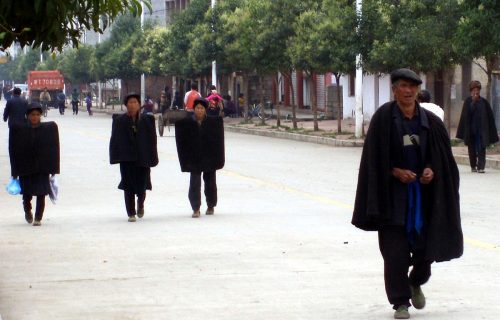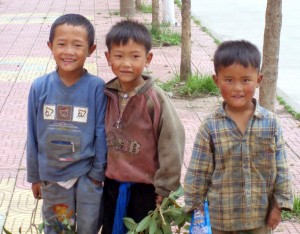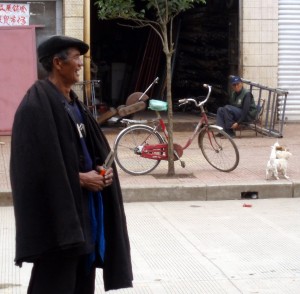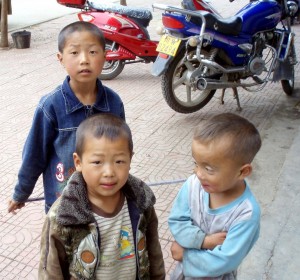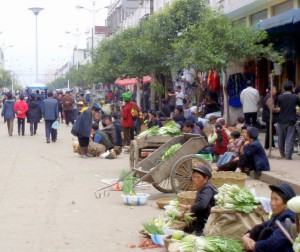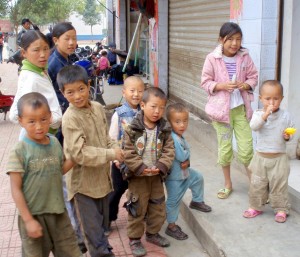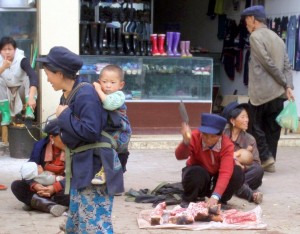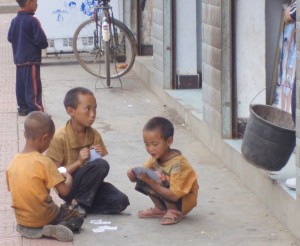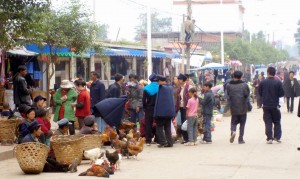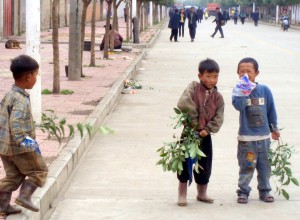Butuo
Brian Hennessy. An Australian in China. 2009
Butuo. A dangerous small town in southwest China. Alcohol, drugs, violence and orphans. Too many of them. A depressing place. Don’t go there.
Butuo
____________________________________________________________
Butuo is the saddest town I have seen in China.
It is a couple of hours by local bus from Xichang, the provincial capital of the Liangshan (Cool Mountains) area in Southern Sichuan province. This is the heart of the Yi Autonomous Prefecture, homeland of the Yi minority people.
There are about 8 million Yi in southwest China. They are spread around northwestern Guizhou (1 million), Yunnan (4.5 million), and southern Sichuan (2.5 million). They speak a mixture of Tibeto-Burmese languages, and most have animist/shamanistic beliefs. A few are Christian (number unknown), the result of missionary effort in the early part of the 20th century; and some are Buddhist, the result of contact with Han Chinese.
The Yi originally migrated from the southeastern part of the Tibetan Plateau and prefer to live in small communities in mountainous regions where they survive on subsistence agriculture. Their traditional clan-based society used to be ruled by a small aristocracy which practiced a complicated form of slavery. This was outlawed when and China assumed control of the region after the Peoples Republic of China was established. No wonder: the Yi had a long and violent history of raiding nearby Han communities for slaves.
Why is Butuo such a sad place?
Let me tell you a story. I had arrived in Xichang after travelling from Lijiang in northwest Yunnan province via Lugu Hu (Lake). In Xichang I met a family who came from Butuo. She was a Han Chinese highschool teacher, and he was a Yi local government officer who was studying social work. They had two children, and I was privileged to be able to travel with them to Butuo.
I could hardly believe the story they told me. The Yi people in their area have a serious alcohol and drug problem. Symptomatic of a society breaking down. Most people are very poor. The law states however, that people caught with drugs should be executed, and the local police enforce this edict rigorously. In fact, on the journey to Butuo, our bus was stopped and searched by armed police and one complete family group was literally hauled off the vehicle and taken into custody.
The consequence of this policy?
Orphans. Neglected, despised, lonely, dirty, unloved, naughty bands of children everywhere. My new friends put the number in the thousands. Although I can’t verify this, I saw enough of these waifs on the streets of Butuo to recognise that this was a serious problem.
The streets. I have never felt so unsafe in China. I am a seasoned traveller and ex-soldier who has journeyed alone through many isolated parts of this great country without ever fearing for my personal safety. Generally speaking, at best local people are friendly and helpful. At worst, they are indifferent. That is all. The only thing to worry about might be a trader trying cheat me because I am a foreigner, or a thief trying to pick my pocket in a dodgy place; e.g., a bus or train station.
Butuo was different. Rather than mix it with the locals as I usually do, I made sure that nobody got close to me. The men were scary. So I walked down the middle of the road rather than along the crowded footpaths as I did a quick reconnaissance of the town in the late afternoon.
Being accosted by orphans was not a problem. As cheeky as they were, I could see that they were unloved. Their cheekiness was just an attempt to communicate with this grey-bearded foreign man. They wanted to know me. Perhaps these boys saw something different in me. Something different from the adult Yi men who menaced the streets of this cold-hearted town. Their behaviour a sure sign of a society turning in on itself. Individual survival having a higher priority than communal welfare.
I could smell the cruelty. The potential for violence. The police weren’t the only ones doing the killing. My new friends told me so, and my own antenna for danger confirmed this impression. Perhaps I am wrong.
But I don’t think so.
I stayed one night – indoors. No way was I going to walk the streets alone at night in this desperate town.
I departed the next day. Sad about the lives of all those children, and frustrated by the fact that the local government would never let a foreign psychologist anywhere near their dirty little secret. That’s what I was told anyway by my friend the Yi local government officer who is powerless to do anything about this terrible social problem in his own backyard.
Having said this, not all Yi communities are similar to Butuo. Their culture flourishes in other places and has produced many famous artists who are appreciated all over China. Their folk-songs are hauntingly beautiful.
But Butuo remains a sad, bad place. This culture, this community, and its people are dying.

